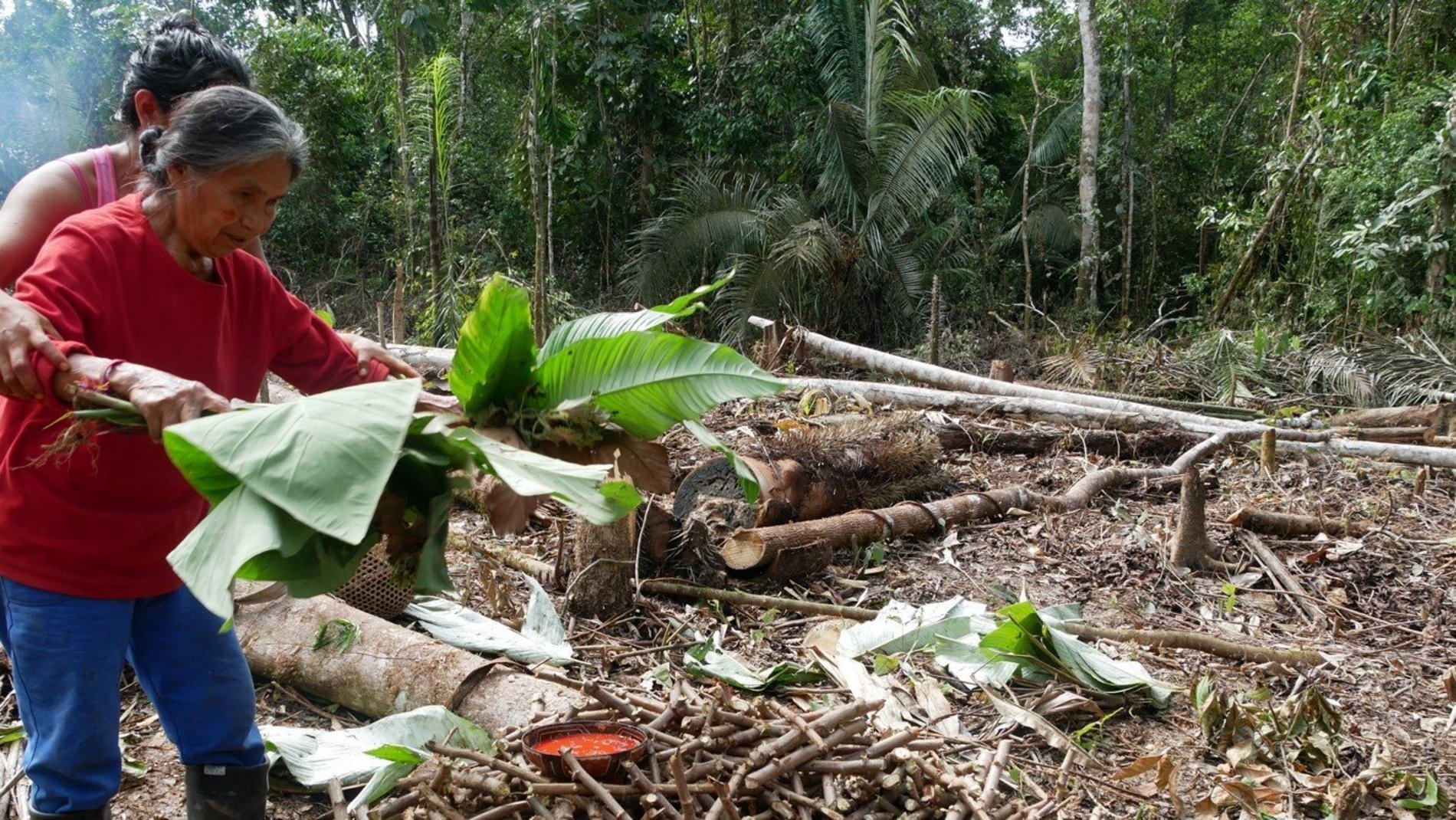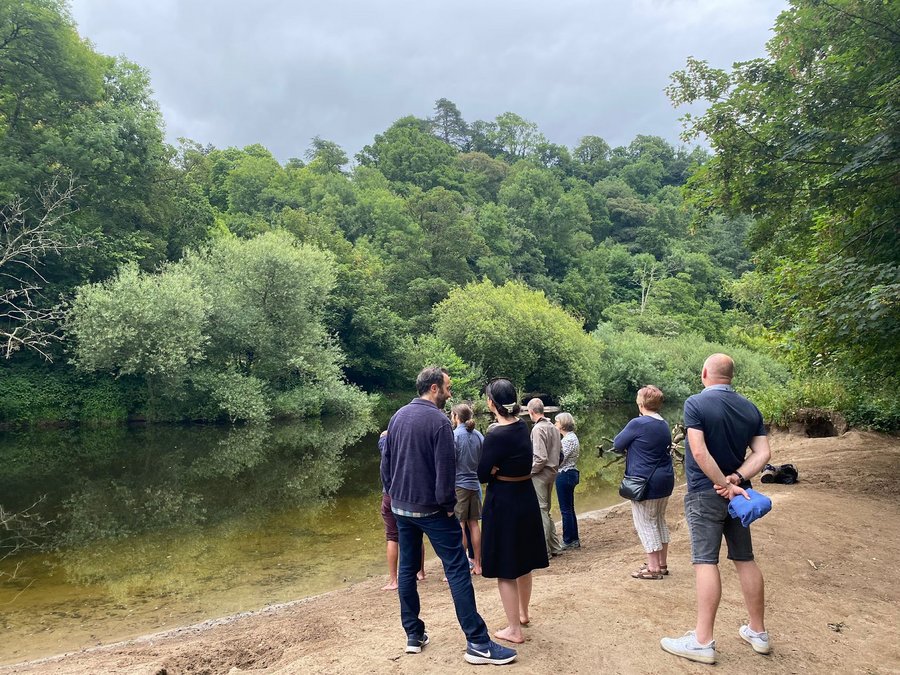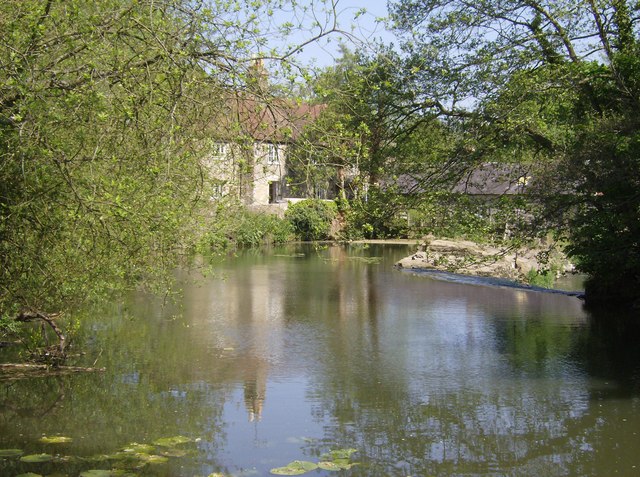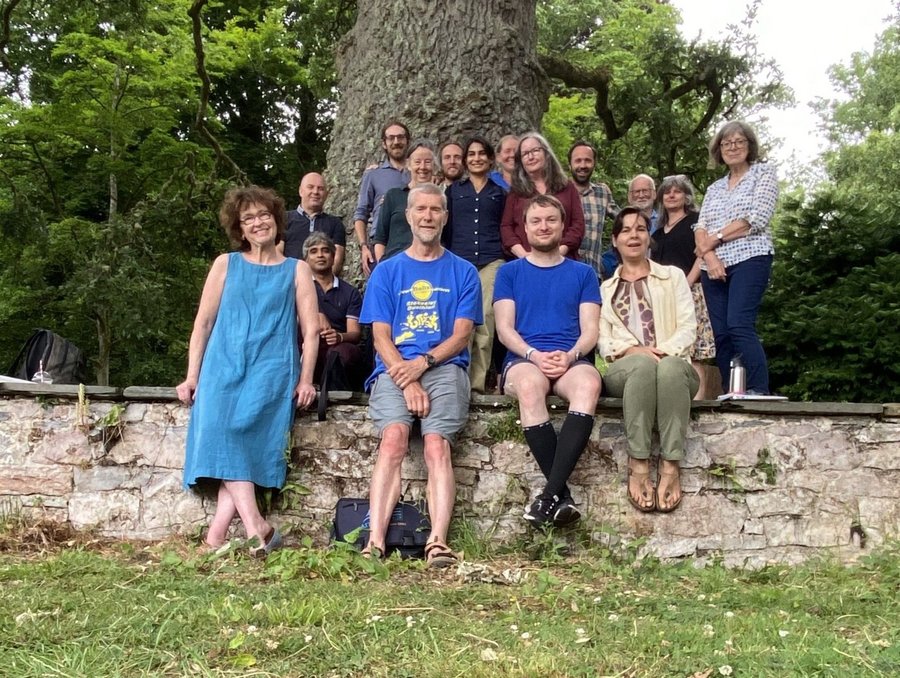The UK Rights of Nature Movement
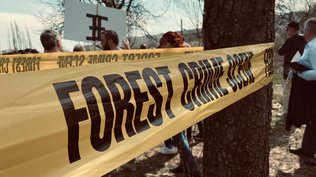
by Alex May and Paul Powlesland, Lawyers for Nature UK
The Rights of Nature (RoN) movement in the UK has been newly revitalised over recent years.
There was an early flurry of activity around 2005-2010, clustered around the UK Environmental Law Association (UKELA), with some conferences , an excellent research report analysing the extent to which Wild Law already existed around the world was published, and annual Wild Law weekends (which continue!). Then, about five years ago, was another burst, with a few research conferences and the first local initiative around the Frome River (more below). Aside from this, while there have been individuals and small organisations in the UK working on RoN, these have been more disparate and usually in relation to projects abroad.
Hopefully this third revitalisation will be the strongest, and indications so far are positive. Over the last few years, the number of people working on RoN has grown and more connections have been established. A workshop in February 2023 brought experts together – though only those already known to organisers – and a UK Rights of Nature Network was subsequently formed, which more have joined. So far, this has involved regular zoom gatherings and a whatsapp chat with 25 members, and we are looking to host an in-person network event and establish a public online presence soon. Throughout the year have been a handful of events organised by various groups who are mostly part of this network.
As well as unaffiliated individuals, the main notable organisations who specifically work on RoN are the Anima Mundi Law Initiative, Lawyers for Nature, the Interdisciplinary Network on the Study of the Rights of Nature and the Environmental Law Foundation.
Political Context
The political context is almost certainly part of why RoN ideas have not flourished yet in the UK. Environmental issues were relatively absent from mainstream political discourse until around 2017, when campaigning by Extinction Rebellion, Youth Strike [better known internationally as Fridays for Future movement] and a Green New Deal campaign forced these issues into the mainstream. However, this momentum was diverted by the outcome of the 2019 election, which saw a resounding victory for the Conservative party to continue for another five years.
The current political situation for environmental issues in the UK is dire. Aside from the effects of Brexit and the pandemic, public services have been cut even further, inflation and the ‘cost of living’ have increased significantly, while wages and jobs move in the other direction.
Ecological concerns remain a significant issue for the public and in local elections, but have featured little in Westminster politics, where campaigners are battling to try to prevent backward steps in environmental protection made possible through Brexit.
While it is generally accepted that Keir Starmer’s Labour Party are set to win the next election, the level of his commitment and ambition in relation to tackling ecological crises – let alone taking a visionary approach such as RoN – are uncertain.
Rights of Nature Initiatives
Large environmental NGOs in the UK are yet to take up the idea of RoN significantly, though some are aware of it. With a couple of exceptions, almost all initiatives have been at the local level. Positively, there are a number budding around the country.
The biggest exception is an early-stage national initiative: work to develop a UK Rights of Nature Bill. After members of the Green Party worked to get RoN accepted as party policy, a drafting team have begun work to attempt to refine the multitude of possibilities into a workable draft. Aside from developing a legislative framework, it may also be the case that one particular ecosystem or body of water decides to embark on a campaign for legislative protection, in the style of the Mar Menor initiative. Neither of these campaigns would be an easy win, as the Green Party only have a small number of Members of Parliament, so it would either need to be taken on by the next government or have a sizeable cross-party coalition to win.
A huge public campaign would likely be needed – though RoN is exactly the type of idea that can inspire and mobilise.
There have been missed opportunities that recent protection campaigns have not taken up the idea of RoN. Extinction Rebellion and related groups have not taken up the idea, and nor have campaigns to prevent exploratory shale gas drilling (‘fracking’) or protect ancient woodland from destruction (such as the Stop HS2 campaign).
Where grassroots initiatives have flourished is in relation to communities wanting to protect their local rivers, only loosely coordinated nationally. In 2021, Derry City and Strabane District Council and Fermanagh and Omagh District Council each passed motions to set out pathways for the councils to explore with civil society and local communities what RoN might mean in practice, and how the concept could be expressed across community and corporate plans, development objectives, and other strategic frameworks. [The authors do not know about progress since.] It is also worth noting that Donegal County Council in the Republic of Ireland have passed a similar motion, and that the Irish Citizens’ Assembly on Biodiversity Loss recommended constitutional RoN in April 2023.
In England, a similar approach has been taken in relation to the River Ouse, with Lewes Council passing motionwhich commits to exploring a Rights of Rivers approach and produce a Declaration of the Rights of the River Ouse which the Council might endorse. This signals an intention and a process to undertake, but only after the follow-up work will there be either policy or legal effects.
These local council initiatives follow in the shadow of a failed 2018 initiative, for the Frome river. Councils have limited powers within the national legal structure; while they can make ‘By-laws’ (the term for local laws which are meant to deal with local issues), these are subject to approval by the national government. The Frome by-law was rejected by national government on the basis that this law duplicated existing environmental protection. While this missed the point that existing protections are inadequate and failing – and have only got worse since – it may be that the by-law was beyond the Town Council’s jurisdiction. These recent initiatives are therefore developing an approach which will be within the Council’s competency, focused on internal plans and declarations. Whether they do include by-laws – or a future government may be amenable to RoN by-laws – remains to be seen.
Many RoN activists have gone for alternative, direct approaches, in light of the legal and political limitations. Some local nature protectors have adopted the concept of guardianship for specific parts of nature such as trees, rivers and woodlands.
This often includes a Declaration of Rights of the River, which have no legal effect but can have powerful political, cultural and spiritual effects. Working within the existing legal and economic framework, what this means in practice varies, but can include direct practical action (such as eg monitoring water quality or removing rubbish from a river), legal challenges using existing laws, and activism against individuals or companies that are harming that part of nature. Such ‘Rights of Nature in action’ approaches are beginning to be taken by many ‘Friends of’ groups in the UK, notable examples being on the River Roding, the River Dart, the River Don, the River Deben and the River Cam.
Another such approach – Nature-Positive Corporate Governance – has been piloted by Lawyers for Nature. This has worked with purpose-driven companies who, within the UK’s flexible company law, wish to introduce RoN by representation in decision-making. Last year, in what we believe to be a world first, the cosmetics firm Faith In Nature a Director to represent nature to its Board of Directors. Just a few weeks ago, interior design company House of Hackney implemented a similar approach. Lawyers For Nature are looking to grow this approach with third sector organisations and public bodies, such as charities, NGOs and public bodies, both in the UK and abroad. Other cultural interventions include facilitating organisation imagination processes which include representing the more-than-human world by Moral Imaginations, and a forthcoming book on Rights of Rivers by bestselling nature author Robert MacFarlane.
Links & Literature
- Lawyers for Nature UK: https://www.lawyersfornature.com/
- Universal Declaration for the Rights of Rivers: https://www.rightsofrivers.org/
- Haroon Siddique (2022): "Give legal rights to animals, trees and rivers, say experts" Guardian. https://www.theguardian.com/environment/2022/oct/10/give-legal-rights-to-animals-trees-and-rivers-say-experts
- Robert MacFarlane (2019): "Should this tree have the same rights as you?" Guardian. https://www.theguardian.com/books/2019/nov/02/trees-have-rights-too-robert-macfarlane-on-the-new-laws-of-nature

